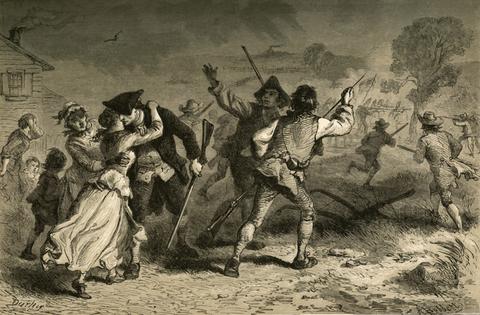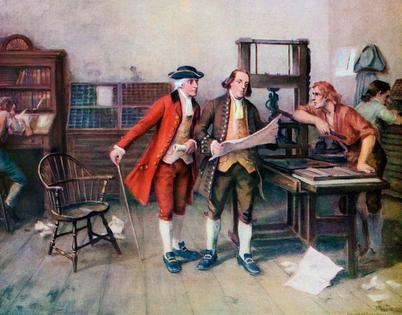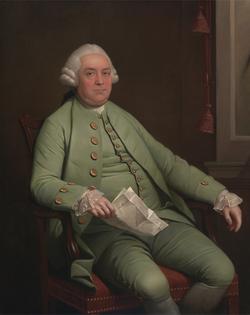How fake foreign news fed political fervor and led to the American Revolution
Published in News & Features
Misinformation is often at the root of political extremism. During the 2022 United States midterm election, some of the most radical politicians in the Republican Party were fueled by the unfounded belief that the previous presidential election in 2020 was stolen.
Misinformation as motivation for political action is nothing new. As I explain in my new book, “Misinformation Nation,” during the American Revolution, the self-declared “Patriot” faction that led the colonies through a bloody fight to independence was guided by a profoundly mistaken belief.
These Patriots thought that the British government aimed to control the colonies and extract their wealth, but that a supermajority of people in Britain nevertheless sympathized with colonists’ desire for autonomy. They imagined that this pro-American public was being silenced and suppressed by the leadership of the unpopular British government.
The notion that their protests would be supported by a receptive British public became central to American Patriots’ strategies for organizing against the British government. They boycotted, petitioned and even fought the British Empire in hopes that doing so would contribute to a turnover in government. The Patriot colonists believed that millions of disempowered Britons would soon overturn the empire’s illegitimate government.
Yet as many Britons understood, this notion that the Parliamentary leadership was unpopular and illegitimate was far from the truth.
In October 1774, three different reports published in Connecticut Patriot newspapers provided three different estimates of the British public’s favor for them, all of them degrees of overwhelming. While one report suggested that “two out of three” British people favored the colonists against the British government, the others indicated that “three quarters” and “ninety-nine in an hundred” supported the Patriot cause.
A couple of years later, a Massachusetts paper similarly insisted that seven-eighths of the “common people of England … are in favour” of the colonists’ protests against the British leadership.
The Patriots were taking these accounts from newspapers published by the English Whig party, which was out of power. This political opposition published newspapers and sent letters to America insisting that they were the true voice of the people.
Patriot newspapers recycled much of their material from the London opposition press, which provided exactly what they wanted to hear, while ignoring news sources associated with the British government.
Many leading American figures accepted this rumor. Benjamin Franklin insisted in 1775 that “I am persuaded the body of the British people are our friends.”
A politically prominent London printer named William Strahan often found himself perplexed by American newspapers’ reporting about British politics.
As he explained in letter after letter written to his friend David Hall, who printed the Pennsylvania Gazette in Philadelphia, these accounts of the unpopularity of the British leadership – and the popularity of the colonists’ cause – were figments of the opposition’s imagination.
The British government members, he wrote in 1772, not only “stand their Ground,” but “gather strength every day.” The next month, he wrote to Hall that the opposition had “melted away.” He insisted that if the colonists declared independence, “this Country will oppose [the colonists] to the last Extremity.” Because his newspaper was aligned with the Patriot cause, Hall did not republish the letters he received from Strahan and continued to share, instead, sources from the British opposition.
Strahan was correct: The people of Britain broadly supported their leaders in Parliament against the upstart colonists. When voters had a chance to register their dissent against Prime Minister Frederick North in an election in 1774, they instead strengthened his hand with a larger majority.
Yet despite this evidence, up until the moment that they declared independence, the Patriot coalition that drove the American Revolution insisted that it had earned the hearts and minds of the British people. They asserted that Prime Minister North’s unpopular leadership would soon collapse like a sandcastle in a hurricane.
Strahan did his best to correct his American contacts. In 1775, he explained to his friend Benjamin Franklin, “your Countrymen may have in many Instances mistaken the Voice of Faction for the real Sense of the Nation at large.”
On another occasion, Strahan wrote to Franklin, “All our Murmerings and Opposition to Government appear only in our Newspapers.”
Seeking political advantage, the British opposition party attempted to portray the government as illegitimate. But the American Patriots mistook these electioneering tactics for the facts.
This disagreement seems to have driven the two friends apart. By late 1775, with the beginnings of war underway, Strahan broached the subject a final time. With great care, he wrote to Franklin, “I shall not trouble you farther upon the Subject than just to tell you once more” that “this unnatural Civil War has been chiefly, if not wholly, occasioned by our wicked Factions” in Britain spreading lies.
Surrounded with news and people who agreed with them, Patriots found it impossible to believe that the sentiments of the British people ran against them. Unchecked by polling or other deliberate efforts to measure public opinion – which did not exist in early America – it was impossible for the Patriots to believe that they were a minority.
Today’s election deniers similarly surround themselves with like-minded people and either use polling selectively or dismiss it as illegitimate. They ignore fact-checks from authoritative sources and trust only congenial sources. Rejecting election results is undoubtedly dangerous, and the American public’s repudiation of election-deniers in the midterms is a victory for American democracy.
But American democracy has long faced such movements. Indeed, in the late 18th century, denying the legitimacy of an elected government was how American democracy came into being.
This article is republished from The Conversation, an independent nonprofit news site dedicated to sharing ideas from academic experts. It was written by: Jordan Taylor, Indiana University. Like this article? subscribe to our weekly newsletter.
Read more:
Dr. Franklin, I presume? The founder who could have been our “founding physician”
The American Founders made sure the president could never suspend Congress
Jordan Taylor does not work for, consult, own shares in or receive funding from any company or organization that would benefit from this article, and has disclosed no relevant affiliations beyond their academic appointment.













Comments